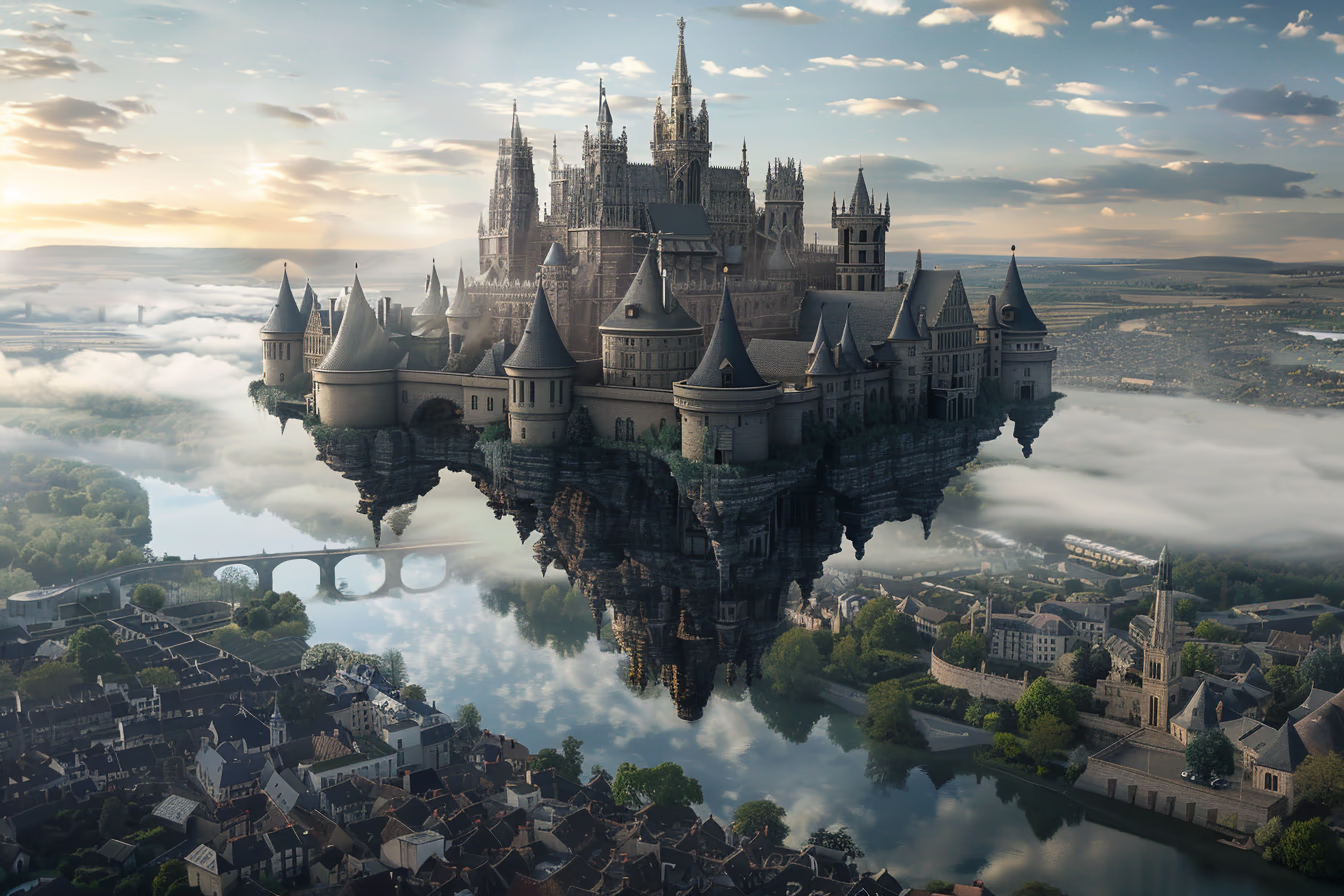Haldren
Haldren is a major Free City situated at the confluence of the Galdur and Maladur rivers. One of the region's most populous cities, it is an economic and diplomatic backbone of the Galdur Valley region. The City is ruled by a executive council of five wizards, elected semidemocratically.

History
The formation of Haldren predates recorded history, but scholars estimate its age at over 20,000 years. Early mythological and legendary material of the settlement indicate likely formation due to an sudden, sustained, and unexplained rise in river trade activity in the Galdur Valley.
In the days of yore, before the rise of Haldren,
When the land lay in desolation and sorrow,
There flowed silent rivers, their waters unspoken,
Their gleaming depths etched with the scars of ancient ruins.In the valley of Galdur, the clans did strive,
Each for their own, cold and bereft of kin.
The rivers were feared, their depths teeming with ill,
And to the gods, both young and old, they raised their desperate pleas.One eve, a wanderer came to the shores of Ardath,
Elanath was his name, cloaked in cerulean, eyes like the firmament.
He spoke of the river's might, of myths and ancient tales,
Of the hidden magic within, and the promise of new bonds.With sacred rites and songs, the waters began to shine,
And where despair once flowed, now hearts were bound in unity divine.
The geographic location of Haldren quickly became a significant advantage, and the city rose in power, becoming the center of the Galdur Kingdom. Separating history from legend is challenging during this phase; the Eight Great Kings of Haldren are regarded by most contemporary historians to have at least existed, though likely not in their distilled, mythological form.
These Kings gradually forged an Empire of the Kingdom, and Valin the Unifier, the Eighth King, brought the entire Valley under his dominion. However, after centuries of unification brining increasing power, the natural slowdown in expansion outside of the valley induced constrained resources, eventually leading to increasing pressure for each Emperor to deliver new lands. This proved unsustainable.
In the latter days of the Empire, a chain of Emperors from outside the city came to power, interested in purely extractive use of the City's resources for building their own personal wealth. This led to a rebellion in the City, the Haldren War of Independence, which itself led to the creation of the Free City of today. Without its anchor city, the remainder of the empire fractured into smaller feudal kingdoms.
Geography
Situated at the confluence of the Galdur and Maladur rivers, Haldren benefits greatly from their navigability, with easy access both upstream and to the ocean. Haldren itself is walled, though it exerts control of the hinterlands several miles outwards, and has a de jure area of 224 square miles. The city is on a slight hill, which provides it excellent defensibility.
Use of the hinterlands is primarily agricultural. Despite food production productivity advantages granted by the significant magical proficiency of the City's Society of Magic, the 200,000-some residents still consume a stupendous quantity of food. Surrounding the city's farmland is principally dense forest; 45 inches of rain fall per year, on average, which leads to significant tree growth when land is not maintained.
Government
Haldren is ruled by the Council of Archmages, an executive body of five wizards. These wizards are elected for a single five-year term from and by the broader House of Delegates of the Society of Magic, a legislative body of 320 Mages Delegate. This body is itseld elected by the 20,000-strong Society of Magic, a magicians' guild in which membership is mandatory to practice magic in the City. The Council is headed by a Chair, who is the most senior member of the Council, and generally in their final year. Such a rotation has given the City considerable political stability, and has generally prevented the accumulation of too much power—a lesson learned in the aftermath of the Haldren War of Independence.
The government provides essential services to the residents of the city: defense, sewage removal, police, and a library and education system. In turn, citizens are subject to a flat income tax of ten percent, and visitors to the city pay entrance fees.
Economy
Haldren has among the most diverse economies in the region. A significant subset of the economy is driven by agriculture; Haldren is the region's primary producer of agricultural equipment, particularly that imbued with magic.
The City's two largest employers are the City Government and the Society of Magic, both of which employ about 10,000 people. The Society of Magic runs the Institute for the Study of Magic, the region's premier school for wizardry.